LSE Festival 2024 runs from Monday 10 to Saturday 15 June, bringing together academics, writers, journalists and leaders to explore how politics and power shape our world. An exciting range of expert panel events and a festival exhibition Displays of Power will delve into topics from the impact of the elections taking place around the world this year to the reality of where power lies in addressing pressing global challenges.
Ahead of the festival, LSE Review of Books Managing Editor Anna D’Alton shares a reading list on power and politics, covering issues from media freedom and struggles against authoritarianism to climate colonialism and data extractivism.
 What Do We Know and What Should We Do About Fake News? Nick Anstead. SAGE. 2021.
What Do We Know and What Should We Do About Fake News? Nick Anstead. SAGE. 2021.
Nick Anstead’s What Do We Know and What Should We Do About Fake News? explores the phenomenon of fake news and possible ways to address it. Given the rise of misinformation and disinformation and its influence in political campaigns of recent years, Matt Bluemink’s review finds the book a touchstone for our times.
Cultivating Democracy by Mukulika Banerjee provides a rich and nuanced perspective on the complexities of politics, agrarian life and citizenship in rural India. Read more about the book in an interview with Mukilka Banerjee and a review by Kishor K. Podh.
Nick Anstead and Mukulika Banerjee are panellists in an LSE Festival event, A year of elections: power and politics in 2024 on Monday 10 June.
 The Circulation of Anti-Austerity Protest. Bart Cammaerts. Springer. 2018.
The Circulation of Anti-Austerity Protest. Bart Cammaerts. Springer. 2018.
In The Circulation of Anti-Austerity Protest, Bart Cammaerts examines how protest circulates in society, drawing on an investigation into the UK anti-austerity movement following the 2008 financial crisis. Cammaerts’s research offers rich insights into how social movements engage with communication technologies and processes, finds Sabrina Wilkinson in her review.
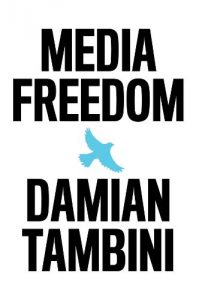 Media Freedom. Damian Tambini. Polity. 2021.
Media Freedom. Damian Tambini. Polity. 2021.
Damian Tambini’s Media Freedom reflects on the history of media in the US, the UK and Europe and makes the case for absolute media freedom in order to uphold democracy. This book offers a cogent and practical response to evolving issues surrounding media freedom, writes Alana Smith in her review.
Damian Tambini and Bart Cammaerts will be participate in an LSE Festival event, Authoritarian populism and media freedom taking place on Tuesday 11 June.
In Carbon Colonialism Laurie Parsons spotlights the injustice and power asymmetries of global climate politics and policy which enable the Global North to outsource carbon production and waste disposal to the Global South. Emphasising the cost to developing nations who bear the severest effects of climate breakdown, Parsons makes a convincing case for radical collective action and an overhaul of the legal framework on climate, writes Sneha Biswas.
Kasia Paprocki, which explores climate change adaptation in the Khulna region of Bangladesh, a place extremely vulnerable to the threats posed by the climate crisis. According to Nikhil Deb’s review, this study deserves wide acclaim for its refreshing take on how the ideologies surrounding climate change and climate victims today reproduce and intensify rural dispossession.
Kasia Paprocki will chair an LSE Festival Event, Colonial power and climate change on Wednesday 12 June.
The Class Ceiling by Sam Friedman and Daniel Laurison offer a unique and encapsulating analysis of class inequality at the top end of the UK labour market. The book is not only compulsory reading for anybody who still believes that the UK is a meritocracy, writes Liam Kennedy, but its mixed-methods approach allows for important, nuanced and often overlooked aspects of social mobility to be understood.
A forthcoming book by Sam Friedman and Aaron Reeves, Born to Rule (Harvard University Press, September 2024), shows how white men from elite backgrounds, who have all too often attended a tiny group of private schools and highly selective universities, remain profoundly overrepresented in the contemporary British elite.
Learn more about this research by visiting the Displays of Power exhibition, in which Friedman and Reeves have an exhibit.
In Narrating Democracy in Myanmar, Tamas Wells interviewed foreign aid workers, Burmese democracy activists and NLD political figures to capture the multifaceted ways in which democracy has been conceptualised in Myanmar over the past decade, often outside of a Western liberal democratic paradigm. Read Giulia Garbagni’s review.
Hear from experts about the struggles of activists to uphold democracy in the LSE Festival event Defending democracy: building solidarity with persecuted writers, journalists, and artists will take place.
The event will feature Alpa Shah as a panellist, author of The Incarcerations: BK-16 and the Search for Democracy in India about the imprisonment of 16 human rights defenders without trial for an alleged terrorism plot against Modi’s government.
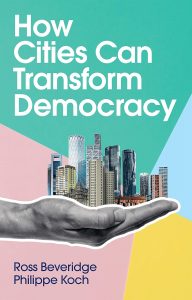 How Cities Can Transform Democracy. Ross Beveridge and Philippe Koch. Polity Press. 2022.
How Cities Can Transform Democracy. Ross Beveridge and Philippe Koch. Polity Press. 2022.
In How Cities Can Transform Democracy, Ross Beveridge and Philippe Koch position the city as a democratic idea and a space for everyday collective action in the context of increasing urbanisation. The book generates new ways of thinking about the democratic potential of the city, writes Charlotte Cator.
Discover how European cities and their leaders play a critical role in addressing pressing policy challenges from inequality to climate change in an exhibit, “Who is Leading Europe’s cities?” featuring research by LSE Cities in the Displays of Power exhibition.
Data Grab by Nick Couldry and Ulises A Mejias explores how Big Tech ushered in an exploitative system of “data colonialism”, whereby elites profit by extracting new “data territories” from the masses. The book argues that conceiving of data exploitation in a continuum with historical colonialism is essential for understanding it and developing strategies on how we can resist it. Read more about the book in an interview with the authors.
Hear from other experts on the topic of technology, data and power at the LSE Festival event AI guardians: who holds power over our data taking place Saturday 15 June.
Note: This list was compiled by Anna D’Alton, Managing Editor of LSE Review of Books.
The post gives the views of the author, and not the position of the LSE Review of Books blog, nor of the London School of Economics and Political Science.
Main image credit: Alejandro_Munoz on Shutterstock.



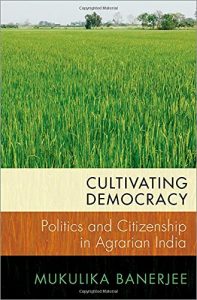 Cultivating Democracy: Politics and Citizenship in Agrarian India. Mukulika Banerjee. Oxford University Press. 2021.
Cultivating Democracy: Politics and Citizenship in Agrarian India. Mukulika Banerjee. Oxford University Press. 2021.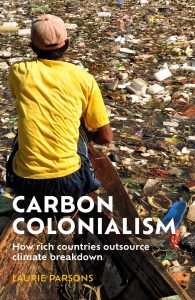 Carbon Colonialism: How Rich Countries Export Climate Breakdown. Laurie Parsons. Manchester University Press. 2023.
Carbon Colonialism: How Rich Countries Export Climate Breakdown. Laurie Parsons. Manchester University Press. 2023. hreatening Dystopias: The Global Politics of Climate Change Adaptation in Bangladesh. Kasia Paprocki. Cornell University Press. 2021.
hreatening Dystopias: The Global Politics of Climate Change Adaptation in Bangladesh. Kasia Paprocki. Cornell University Press. 2021. The Class Ceiling: Why It Pays to be Privileged. Sam Friedman and Daniel Laurison. Bristol University Press. 2019.
The Class Ceiling: Why It Pays to be Privileged. Sam Friedman and Daniel Laurison. Bristol University Press. 2019. Narrating Democracy in Myanmar: The Struggle between Activists, Democratic Leaders and Aid Workers. Tamas Wells. Amsterdam University Press. 2021.
Narrating Democracy in Myanmar: The Struggle between Activists, Democratic Leaders and Aid Workers. Tamas Wells. Amsterdam University Press. 2021.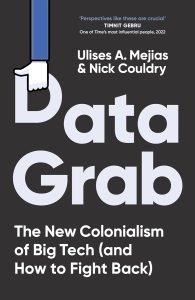 Data Grab: The New Colonialism of Big Tech and How to Fight Back. Ulises A Mejias and Nick Couldry. WH Allen. 2024.
Data Grab: The New Colonialism of Big Tech and How to Fight Back. Ulises A Mejias and Nick Couldry. WH Allen. 2024.




